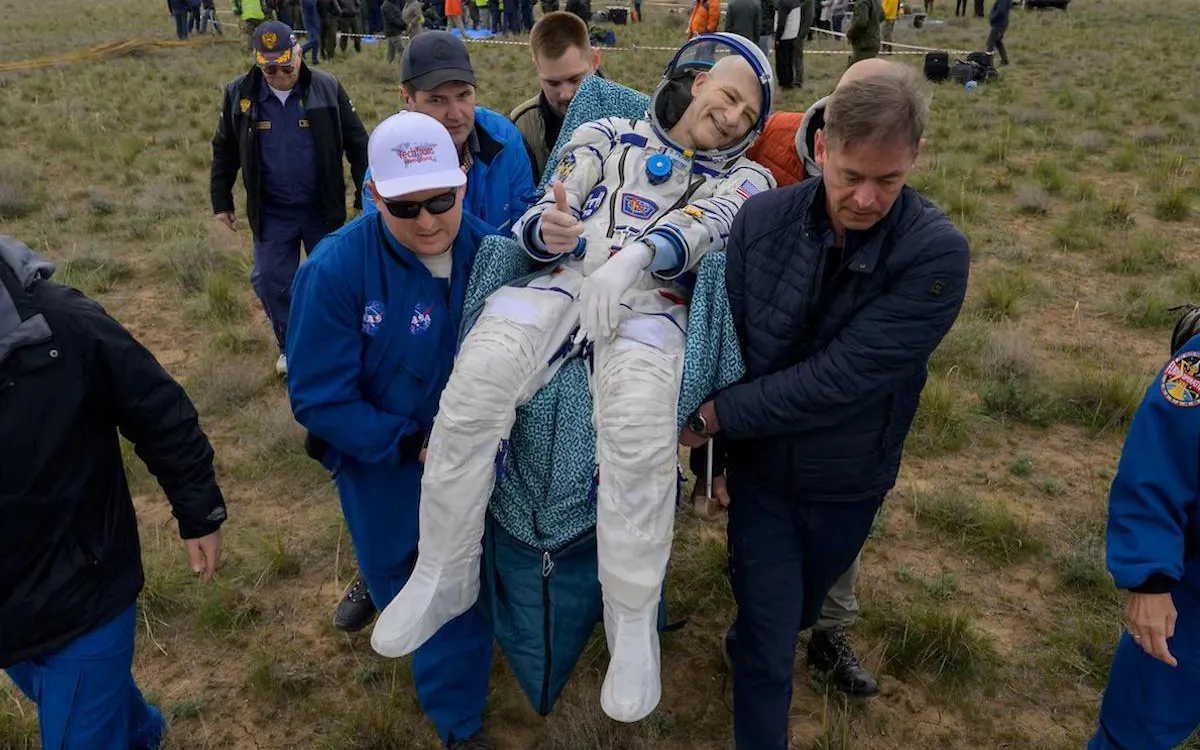
Don Pettit, NASA’s oldest serving astronaut, made a triumphant return to Earth on Saturday after an impressive 7-month mission aboard the International Space Station (ISS). Celebrating his 70th birthday, Pettit’s homecoming was marked by excitement, although his post-landing appearance raised some concerns regarding his health. After landing in Kazakhstan, Pettit was promptly taken to a medical tent for routine checks, leading to speculation about his well-being.
Pettit, alongside Roscosmos cosmonauts Alexey Ovchinin and Ivan Vagner, departed the ISS at 5:57 p.m. ET on Saturday aboard a Soyuz spacecraft. The spacecraft made a successful parachute-assisted landing at 9:20 p.m. ET in the southeast region of Dzhezkazgan, Kazakhstan. Observers watching NASA’s live feed noted that Pettit appeared somewhat frail after his time in space. However, NASA officials quickly dismissed worries about his health, stating that he was doing well and within the expected range following his return to Earth.
NASA took to social media to reassure the public, tweeting, “According to NASA officials at the landing site, @Astro_Pettit is doing well and in the range of what is expected for him following return to Earth.” In a pre-departure interview on April 16, Pettit discussed the physiological effects of returning to Earth, stating, “This is a physiological thing. It affects different people in different ways. Some people can go out and eat pizza and dance. When I land, it takes me about 24 hours to feel like I’m a human being again.” He humorously added, “Once I get to Earth, I will probably empty the contents of my stomach out the way it wasn’t meant to go.”
Pettit’s journey began on September 11, 2024, when he launched to the ISS, spending a remarkable 220 days conducting scientific research and experiments in a microgravity environment. His work included growing plants and studying the behavior of fire in space, which not only furthered scientific knowledge but also captivated his followers with stunning views from the ISS.
This mission marked Pettit’s fourth trip to space, contributing to his impressive total of 590 days spent in orbit. His first mission began on November 23, 2002, aboard the Space Shuttle Endeavour. Originally intended to last two and a half months, that mission extended to nearly six months due to the tragic Columbia Space Shuttle disaster, which claimed the lives of all seven astronauts and led to the grounding of the Space Shuttle fleet.
While Pettit has made significant contributions to space exploration, he is not the oldest person to travel to space. That title belongs to John Glenn, who launched on the Space Shuttle Discovery in 1998 at the age of 77. Remarkably, Peggy Whitson became the oldest woman to orbit Earth in 2023, serving as commander of the private 10-day mission to the ISS, Axiom Mission-2, at the age of 63. In comparison, Pettit’s lengthy missions have provided invaluable insights into the effects of long-duration spaceflight, particularly related to aging—an ongoing area of research in space science.
As Pettit returns to Earth, his extensive experience and dedication to space exploration continue to inspire future generations of astronauts and scientists, highlighting the importance of human adaptability in the face of the challenges posed by space travel.